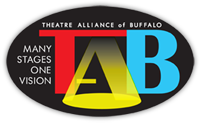 |
| Search |
|
|

|
 |
Editorials
Mark Twain once wrote that "there are lies, damn lies and then there are statistics" implying that any assertion can be supported if data is presented selectively. There are valid and invalid ways to consider data and invalid ways are often used, consciously or not, to try and support dubious claims. In Mr. Gaughan's analysis there appears to be all three present.
According to Mr. Gaughan's website (http://www.thecost.org/) the population of our town as of 2005 is 44,709, the number of elected officials is 11 and the ratio of legislators to citizens is 3,726 to 1 and if Buffalo had the same ratio, there would be 75 Common Council members. The Town cost is cited as being $1,067,606 with a total cost of $1,716,509.
Fist off there is arguably 5 legislators in the town (the Supervisor is also an executive) therefore the ratio of legislators to citizens is actually 8,941.8 to 1, if you exclude the supervisor it becomes 11,177.25 to 1. There is also an arithmetic error in his calculations. Even if you base this on the misapprehension that there are 11 legislators the ratio should be 4064.45 to 1.
According to the 2005 census estimates (http://www.census.gov/popest/cities/tables/SUB-EST2005-01.xls ) the City of Buffalo had 279,745 citizens. With 9 Common Council members it would have a legislator to citizen ratio of 31,082.78 to 1. If the City of Buffalo's legislative body were comprised of a legislative body with the same ratio as West Seneca's then there would be 31.3 members with the supervisor or 25.03 members without the Supervisor not the 75 as asserted by Mr. Gaughan's "study". However this metric fails to acknowledge the economic reality of economies of scale, and is truly meaningless.
As far as cost savings (using the figures on Mr. Gaughan's "study") the elimination of two board seats would represent only 9.25% of the total expenditures of all the elected town officials or 4.36% of the total cost of the elected officials and their staff or not even 2/10 of 1% of the 2009 Tentative Town Budget for a 40% to 50% loss of the legislative branch of government that is accountable to you through your vote. Not to mention that any cost saving, if any, would be insignificant on one’s town property tax bill.
Let's talk about the practical effects that such a downsizing will have. I do not believe that reducing Town Boards below 5 members is good government nor is it effective.
I believe that once the board is reduced by two that the remaining three will vote themselves a raise on the premise that they are now doing the work of five and/or the hiring of additional staff to address their increased workload. Reducing the number of council members on a town board will not have the type of savings as reducing the number of legislators in the county legislature because unlike the county legislators the town council members do not have their own offices and do not have their own staff. This reduction may also adversely affect the Town’s ability to borrow and the rate of interest it would have to pay when it is able to borrow. There are other measures that could be considered that would reduce the cost of town government. For example the town could eliminate the planning board and assume its functions. I support substantive changes in government to reduce cost not ineffective or symbolic changes. Reducing the town board to 3 members will have negative consequences for the town and its citizens and may increase the cost of government while at the same time destroy the democratic rule of the town.
There are a number of actions that a Town Board takes that requires a super-majority vote. For example a request for re-zoning where a protest is filed by the neighbors bordering the property to be re-zoned must be approved by three-fourths of the Town Board. If the Town Board is reduced to three members then in order to approve those measures the vote would then have to be unanimous. By reducing the number of councilman to three will also increase the potential that a board member feeling disenfranchised would withhold his or her vote on an issue that requires a unanimous vote until certain items he or she desires to be passed are passed first, this would not be majority rule, but minority rule.
Another issue comes up when a town board member is absent from a meeting for whatever reason or is disqualified from voting on a measure due to a conflict of interest. In this case there would only be two members voting. In this case all the items would require a unanimous vote in order to pass because a tie vote would result in a failure of the item to pass.
Another issue is related to the Open Meetings Law. The Open Meetings Law requires notice to the public and that the public be allowed to attend any meeting where a quorum meets to discuss public business. If the board is reduced to three a quorum will consist of any two members. This will actually serve to open most decisions made by the Town Board subject to challenges by parties who may differ with the various decisions on zoning changes, special use permits, etc. in an effort to overturn them. On the other hand, it may also hinder the permissible discussions among board-members.
This so-called savings is totally outweighed by these reasons and the concentration of power into a few hands. Five members is a reasonable number in a politically diverse, but balanced community.
This is not to say that some governments shouldn't rightsize their legislative bodies. However, we need simpler governance (fewer overlapping services, less unfunded mandates, perhaps fewer layers, etc) not less representation.
You will ultimately have a vote on this issue. The current question is when and upon which question. If it is held on November 17 you will be asked whether the reduction of councilmen should occur beginning January 1, 2012. If it is held in the spring you will be asked whether the reduction of councilmen should occur beginning January 1, 2010.
Our forefathers were concerned that a strong executive branch would lead to the same abuses and excesses of the monarchy we were separating from and therefore preferred a strong legislative branch that is controlled by the people. We should not reduce our voice in town governance and I urge all of you to vote no to this question regardless of when the vote is held.
© Copyright 2023 - Speakupwny.com
hosted by Online Media, Inc
Buffalo Web Design and Web Hosting
Top of Page
|
|
 |
Editorials
Latest Headlines
|




|
Buffalo Web hosting and Buffalo Web Design By OnLineMedia, Inc
www.olm1.com
Part of
www.onlinebuffalo.com
|


